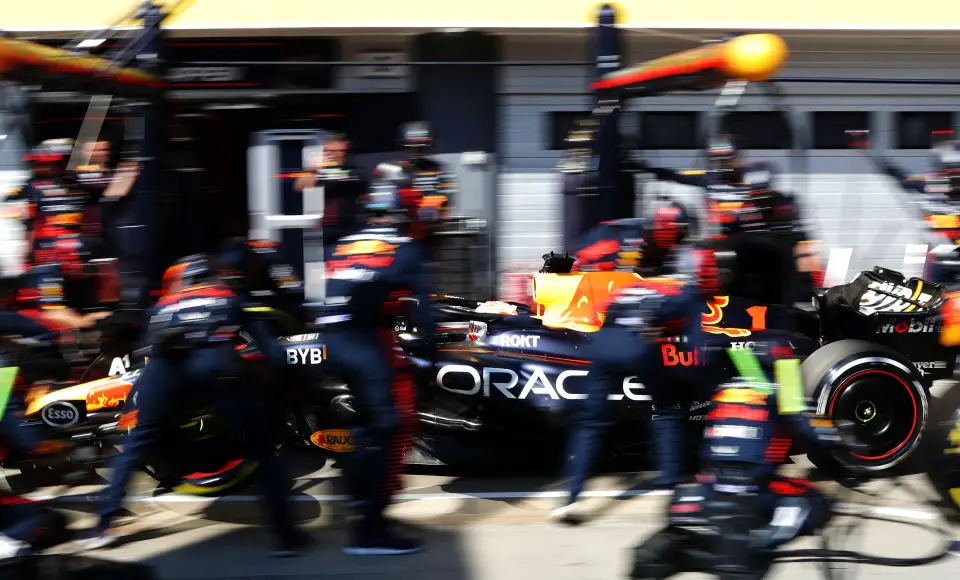Red Bull’s Rulebook Mastery: Jonathan Wheatley’s Ingenious Strategy and Its Impact on F1 Racing
Red Bull’s sporting director Jonathan Wheatley has been a pivotal figure in mastering the F1 rulebook, turning every scenario into a strategic advantage for the team. His approach, described as “insane” by himself, involves thorough preparation and exploitation of loopholes within the regulations.
Key Takeaways:
- Masterful Rulebook Knowledge: Jonathan Wheatley, with his extensive experience since 2006, has become an expert in understanding and leveraging the F1 rulebook to Red Bull’s advantage. His ability to foresee various scenarios and prepare accordingly has made him a key asset in the team’s strategy and success.
- Strategic Maneuvers in Pit Operations: Wheatley’s insights have enabled Red Bull to execute complex maneuvers like double stacking during pit stops. His confidence and detailed planning have led to exceptional team performances, despite occasional setbacks like radio failures or tyre miscommunications.
- Leveraging Loopholes at the Japanese Grand Prix: A notable example of Wheatley’s strategizing was evident during the Japanese Grand Prix, where he used a loophole to prevent Sergio Perez from receiving a grid drop penalty, demonstrating his capacity to turn challenging situations to the team’s advantage.


In the dynamic and competitive world of Formula 1 racing, Red Bull’s sporting director, Jonathan Wheatley, stands out as a master strategist. Having served in this role since 2006, Wheatley has developed an exceptional understanding of the F1 rulebook, enabling him to think through almost every possible scenario and create plans that ensure Red Bull’s preparedness for any eventuality.
Wheatley’s approach to his role is both methodical and innovative. “The way I do my job is insane in a lot of ways because I think through every single scenario that I think could happen and I look at the rules and I look at how the team might react and I try to come up with an idea,” he explained on Red Bull’s podcast. This meticulous preparation has made him a valuable liaison between Red Bull and the FIA, and a mentor in training and developing the team’s pit crew personnel.
His expertise has also been crucial in pit operations. Wheatley’s confidence and thorough preparation have enabled Red Bull to successfully execute complex strategies, such as double stacking during pit stops. “It’s that moment, you’ve got to shine and people just rise to the occasion and that is a fantastic moment when you execute a double stack well with a small gap between cars,” Wheatley stated, highlighting the importance of team performance in such critical situations. Despite facing challenges like radio failures and tyre miscommunications, the team has learned and adapted, continuously improving their operations.
A standout example of Wheatley’s strategic acumen was during the Japanese Grand Prix, where he navigated a rulebook loophole to prevent a grid drop penalty for Sergio Perez. After Perez retired from the race due to contact, earning a five-second penalty, Wheatley’s quick thinking and deep understanding of the rules allowed the team to send Perez back onto the track to serve the penalty, avoiding a more severe punishment in the next race.
In conclusion, Jonathan Wheatley’s role at Red Bull exemplifies the importance of strategic thinking and rulebook knowledge in Formula 1. His unique approach to preparing for every conceivable scenario has not only bolstered Red Bull’s performance but also highlighted the intricate interplay between rules, strategy, and success in the world of high-stakes motor racing.


